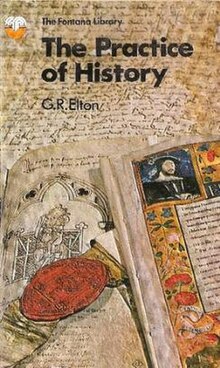
Historiography is the study of the methods of historians in developing history as an academic discipline, and by extension is any body of historical work on a particular subject. The historiography of a specific topic covers how historians have studied that topic using particular sources, techniques, and theoretical approaches. Scholars discuss historiography by topic—such as the historiography of the United Kingdom, that of WWII, the British Empire, early Islam, and China—and different approaches and genres, such as political history and social history. Beginning in the nineteenth century, with the development of academic history, there developed a body of historiographic literature. The extent to which historians are influenced by their own groups and loyalties—such as to their nation state—remains a debated question.
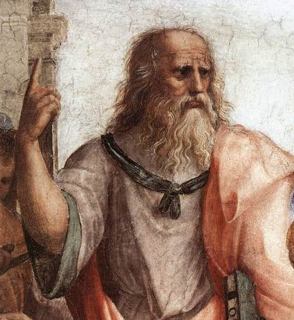
In philosophy, the term idealism identifies and describes metaphysical perspectives which assert that reality is indistinguishable and inseparable from human perception and understanding; that reality is a mental construct closely connected to ideas. Idealist perspectives are in two categories: (i) Subjective idealism, which proposes that a material object exists only to the extent that a human being perceives the object; and (ii) Objective idealism, which proposes the existence of an objective consciousness that exists prior to and independently of human consciousness, thus the existence of the object is independent of human perception.
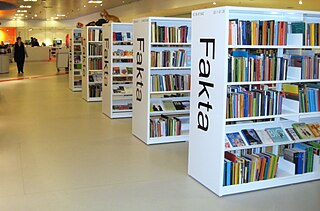
A fact is something that is true. The usual test for a statement of fact is verifiability, that is whether it can be demonstrated to correspond to experience. Standard reference works are often used to check facts. Scientific facts are verified by repeatable careful observation or measurement by experiments or other means.
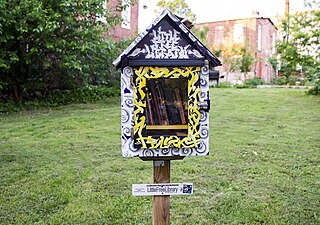
The sociology of knowledge is the study of the relationship between human thought and the social context within which it arises, and of the effects that prevailing ideas have on societies. It is not a specialized area of sociology but instead deals with broad fundamental questions about the extent and limits of social influences on individuals' lives and with the social-cultural basis of our knowledge about the world. Complementary to the sociology of knowledge is the sociology of ignorance, including the study of nescience, ignorance, knowledge gaps, or non-knowledge as inherent features of knowledge-making.

John Rogers Searle is an American philosopher widely noted for contributions to the philosophy of language, philosophy of mind, and social philosophy. He began teaching at UC Berkeley in 1959, and was Willis S. and Marion Slusser Professor Emeritus of the Philosophy of Mind and Language and Professor of the Graduate School at the University of California, Berkeley until 2019.

Social reality is distinct from biological reality or individual cognitive reality, representing as it does a phenomenological level created through social interaction and thereby transcending individual motives and actions. The product of human dialogue, social reality may be considered as consisting of the accepted social tenets of a community, involving thereby relatively stable laws and social representations. Radical constructivism would cautiously describe social reality as the product of uniformities among observers.
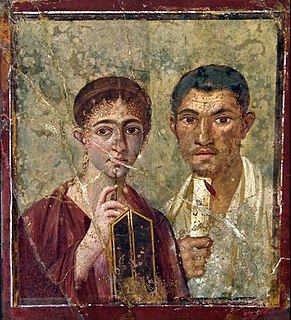
In the study of history as an academic discipline, a primary source is an artifact, document, diary, manuscript, autobiography, recording, or any other source of information that was created at the time under study. It serves as an original source of information about the topic. Similar definitions can be used in library science and other areas of scholarship, although different fields have somewhat different definitions. In journalism, a primary source can be a person with direct knowledge of a situation, or a document written by such a person.
Sir Geoffrey Rudolph Elton was a German-born British political and constitutional historian, specialising in the Tudor period. He taught at Clare College, Cambridge, and was the Regius Professor of Modern History there from 1983 to 1988.
Journalistic objectivity is a considerable notion within the discussion of journalistic professionalism. Journalistic objectivity may refer to fairness, disinterestedness, factuality, and nonpartisanship, but most often encompasses all of these qualities. First evolving as a practice in the 18th century, a number of critiques and alternatives to the notion have emerged since, fuelling ongoing and dynamic discourse surrounding the ideal of objectivity in journalism.
Philosophical realism is usually not treated as a position of its own but as a stance towards other subject matters. Realism about a certain kind of thing is the thesis that this kind of thing has mind-independent existence, i.e. that it is not just a mere appearance in the eye of the beholder. This includes a number of positions within epistemology and metaphysics which express that a given thing instead exists independently of knowledge, thought, or understanding. This can apply to items such as the physical world, the past and future, other minds, and the self, though may also apply less directly to things such as universals, mathematical truths, moral truths, and thought itself. However, realism may also include various positions which instead reject metaphysical treatments of reality entirely.

What Is History? is a 1961 non-fiction book by historian Edward Hallett Carr on historiography. It discusses history, facts, the bias of historians, science, morality, individuals and society, and moral judgements in history.
In literary and historical analysis, presentism is the anachronistic introduction of present-day ideas and perspectives into depictions or interpretations of the past. Some modern historians seek to avoid presentism in their work because they consider it a form of cultural bias, and believe it creates a distorted understanding of their subject matter. The practice of presentism is regarded by some as a common fallacy when writing about the past.
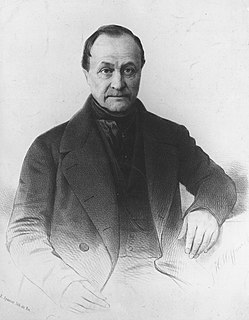
Positivism is an empiricist philosophical theory that holds that all genuine knowledge is either true by definition or positive—meaning a posteriori facts derived by reason and logic from sensory experience. Other ways of knowing, such as theology, metaphysics, intuition, or introspection are rejected or considered meaningless.

The primary–secondary quality distinction is a conceptual distinction in epistemology and metaphysics, concerning the nature of reality. It is most explicitly articulated by John Locke in his Essay concerning Human Understanding, but earlier thinkers such as Galileo and Descartes made similar distinctions.

Parametric determinism is a Marxist interpretation of the course of history. It was formulated by Ernest Mandel and can be viewed as one variant of Karl Marx's historical materialism or as a philosophy of history.
Bracketing is the preliminary step in the philosophical movement of phenomenology describing an act of suspending judgment about the natural world to instead focus on analysis of experience. Its earliest conception can be traced back to Immanuel Kant who argued that the only reality that one can know is the one each individual experiences in their mind . Edmund Husserl, building on Kant’s ideas, first proposed bracketing in 1913, to help better understand another’s phenomena.
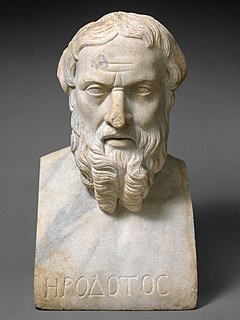
History is the study and the documentation of the past. Events before the invention of writing systems are considered prehistory. "History" is an umbrella term comprising past events as well as the memory, discovery, collection, organization, presentation, and interpretation of these events. Historians seek knowledge of the past using historical sources such as written documents, oral accounts, art and material artifacts, and ecological markers.
Ludwig Bertalanffy describes two types of systems: open systems and closed systems. The open systems that we know of are systems that allow interactions between their internal elements and the environment. An open system is defined as a “system in exchange of matter with its environment, presenting import and export, building-up and breaking-down of its material components.” Closed systems, on the other hand, are held to be isolated from their environment. Equilibrium thermodynamics, for example, is a field of study that applies to closed systems.
This is a glossary of terms used in New Thought.
In philosophy, naturalism is the idea or belief that only natural laws and forces operate in the universe.
Naturalism is not so much a special system as a point of view or tendency common to a number of philosophical and religious systems; not so much a well-defined set of positive and negative doctrines as an attitude or spirit pervading and influencing many doctrines. As the name implies, this tendency consists essentially in looking upon nature as the one original and fundamental source of all that exists, and in attempting to explain everything in terms of nature. Either the limits of nature are also the limits of existing reality, or at least the first cause, if its existence is found necessary, has nothing to do with the working of natural agencies. All events, therefore, find their adequate explanation within nature itself. But, as the terms nature and natural are themselves used in more than one sense, the term naturalism is also far from having one fixed meaning.
